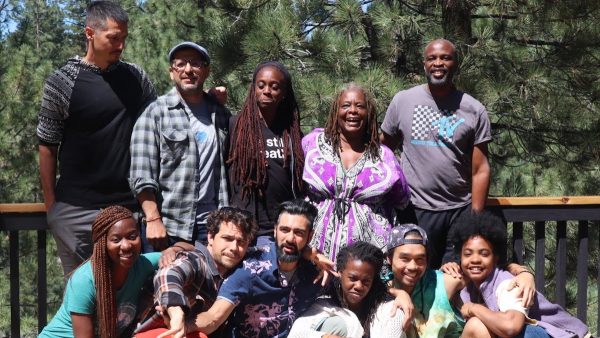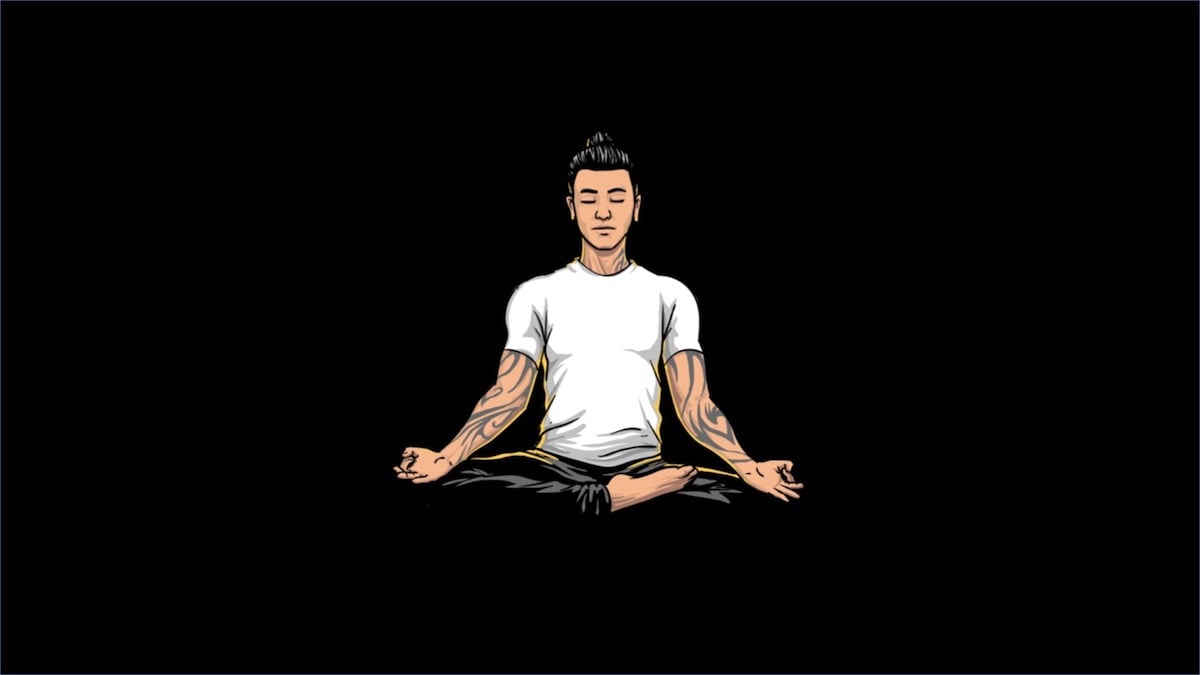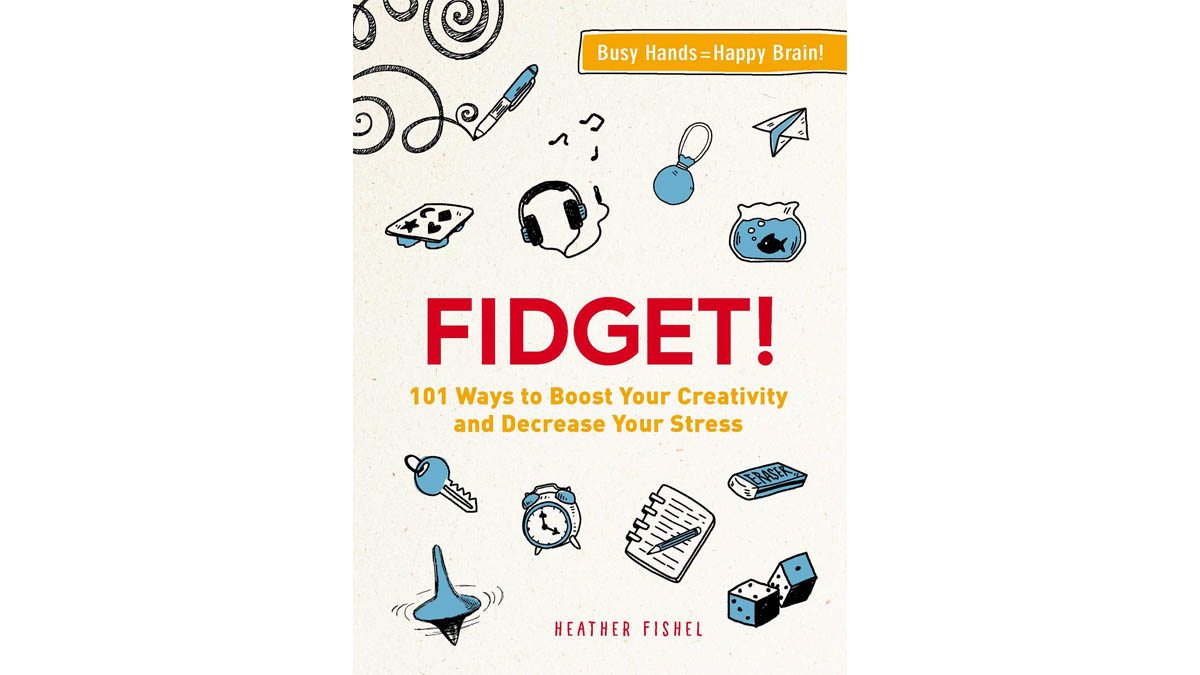
Inward Bound Mindfulness Education is a non-profit organization dedicated to bringing mindfulness and meditation tools to teens and adults in the U.S., Canada, and the UK. Starting in 2010, it is known for its teen retreats that develop compassion, self-awareness, and ethical decision-making to empower themselves and their communities. As a huge proponent of meditation for everyone, I am thrilled there is a group that helps our younger ones develop this skill early. Mindfulness skills continue to grow in popularity, especially in teens because they help lower stress which can help in all areas of life from relationships, school, and better sleep. iBme retreats were the subject of a study on teen mental health in 2016 that showed a significant positive benefit to the mindfulness retreat in their mental well-being right after the retreat and in a follow up several months later. Here, I interviewed Charisse Minerva, a Mindfulness Consultant at iBme.
GeekMom Rebecca Angel:
How and when did you join?
Charisse:
I became involved around 2010 when the non-profit I worked with as Director of Youth & Family Programming incubated the program. This was before it was even called “iBme.” I have been an iBme Retreat Teacher for about six years and a core member of the iBme Teacher Training Program for the past two years. This is my 4th year on the iBme Board.
Rebecca:
Is the curriculum used in your programs different for teens than adults?
Charisse:
When dealing with youth, curriculum really needs to be engaging, authentic, and full of integrity. Their “bullshit” meter is quite strong. This is not necessarily as strongly the case with adults. We also work with shorter attention spans. I feel the curriculum developed for youth strongly informs how to teach adults too. Perhaps with adults, you are able to get more discussion initially. However, with the youth they go deeper and deeper once you have earned their trust. Once that happens, it’s amazing the wisdom they deliver. They truly are the “Messengers from the future.”
Rebecca:
How about parents versus educators?
Charisse:
In my work as a Mindfulness Consultant, I work with people of all ages. When working with educators I am able to point out things that will be directly applicable in classroom situations. With parents, I don’t really see much difference from other adults. In fact, when I work with adults I really work to have them get in touch with their youthful self which can be more open to change and difference than how we get as adults, stuck in traditions, finding it harder to accept change.
Rebecca:
Self-awareness, compassion, and ethical decision-making are at the core of your curriculum. These are some big goals most adults struggle with.
Charisse:
I personally believe youth are much more in touch with these values. In some ways, we grow out of them, not into them. With self-awareness, we teach and guide towards more compassion for self. With compassion for self comes compassion for others. With compassion for others comes ethical decision-making. It’s all connected. Another beautiful thread is that this building awareness brings about a closer connection to nature as we become more aware of how we are not separate as human beings. This is good for youth and adults.
Rebecca:
How do teens respond to the programs? Do you hear from them afterward?
Charisse:
Teens tend to respond very favorably. They become more accepting of who they are. We as teachers and mentors do a lot of work with our practice in living the model of “We welcome you and ALL that you bring.” When we live in an environment where we are accepted for exactly who we are, we gain a freedom that is exquisite! This also allows the development of bonds across all kinds of diversity as we realize how much in common we are as a community yet how unique each of us is in that community. That doesn’t mean that it’s always perfect. Instead it’s what do we do when it isn’t perfect. Living in a culture that is so polarized it is healthy to live an experience where I can still be different and yet a part of the whole. A whole that is not monolithic but is made more beautiful by the diversity each person brings.
We definitely hear from them. Many come back over and over and then volunteer as mentors once they have aged out. (Our age range is 15-19). In fact, we have now added young adult retreats as youth continue to long for the environments created at these retreats.

Rebecca:
I found out about iBme while looking for teen meditations on Insight Timer, a meditation app I use. How are apps and technology helping or getting in the way of mindfulness?
Charisse:
I believe they are opening up the world of Mindfulness for teens. It’s already such a part of their lives. It’s great they can get an app with bells, chimes, people meditating at the same time, etc. However, I do not think that replaces the actual experience of sitting, etc. in a space with others practicing. It is an intimate non-verbal experience. It creates a community without using the voice. Then when we speak we have more trust and understanding of each other. WOW, imagine what would happen if our leaders would sit together before they spoke. Perhaps some conflict could be averted. And in fact, there are politicians that are advocating for just that.
Rebecca:
One of my children suffered from a mental collapse in their late teens. They credit meditating five minutes daily to helping them pull out of it, and to continue to be healthy a couple of years later. We discovered meditation and mindfulness together. I often wish I had introduced meditation (which I now also practice daily) to my children much earlier, but it wasn’t a part of anything I knew. How can parents introduce meditation to their children? When is a good age?
Charisse:
Any age is good. I have worked in a school where we practiced meditation with 3- and 4-year-olds. How the practice is introduced is what is important dependent on age. Many children these days are raised in families where parents practice meditation, especially yoga, and are familiar with these tools. This is true for many teens that come to iBme retreats. However, they are really happy to practice with other youth and find insight into that experience. As this movement grows there will be more and more ways that are available in communities, coaches on sports teams, theater groups, teachers in classes, etc. I would keep a lookout for what is going on in my neighborhood. And for youth between 15-19, iBme has retreats all over the country and even now in the UK. So please go to the webpage iBme.com and look at the calendar for upcoming retreats.
Rebecca:
Why is mindfulness important for parents of teens? (Not just the teens.)
Charisse:
Mindfulness is about awareness. Self-awareness in whatever the mood or emotion I am engaged in. Learning to observe and accept who I am and in that awareness and acceptance comes the ability to make decisions and act in ways that are not only less detrimental but in fact create value. It’s like getting into the driver’s seat and being able to steer no matter the weather conditions. The younger a person learns these tools the better. However, it’s never too late and I always believe it’s of value.
As parents, with self-awareness, we are able to observe our own reactions to our teens. The teen years 13-26 can be very intense for parents and children. When parents are grounded in a Mindfulness practice, they are not as buffeted by the winds of their teen’s storms. They are also better able to navigate their own decisions involving the teens as well. Dan Siegel has a great book, Brainstorm, that is written to be read by parents and teens. It is sooooo insightful. I recommend it highly.
Rebecca:
Thank you, Charisse, for answering my questions and providing more resources for parents to check out to bring mindfulness into their families. Peace.
For more information about how iBme began and its philosophy, please watch this video:
Cover image by Bondan on pngtree.com





Self-knowledge is the best state in everyone’s life. You don’t have to be afraid of your inner problems. It is necessary to solve all your problems.